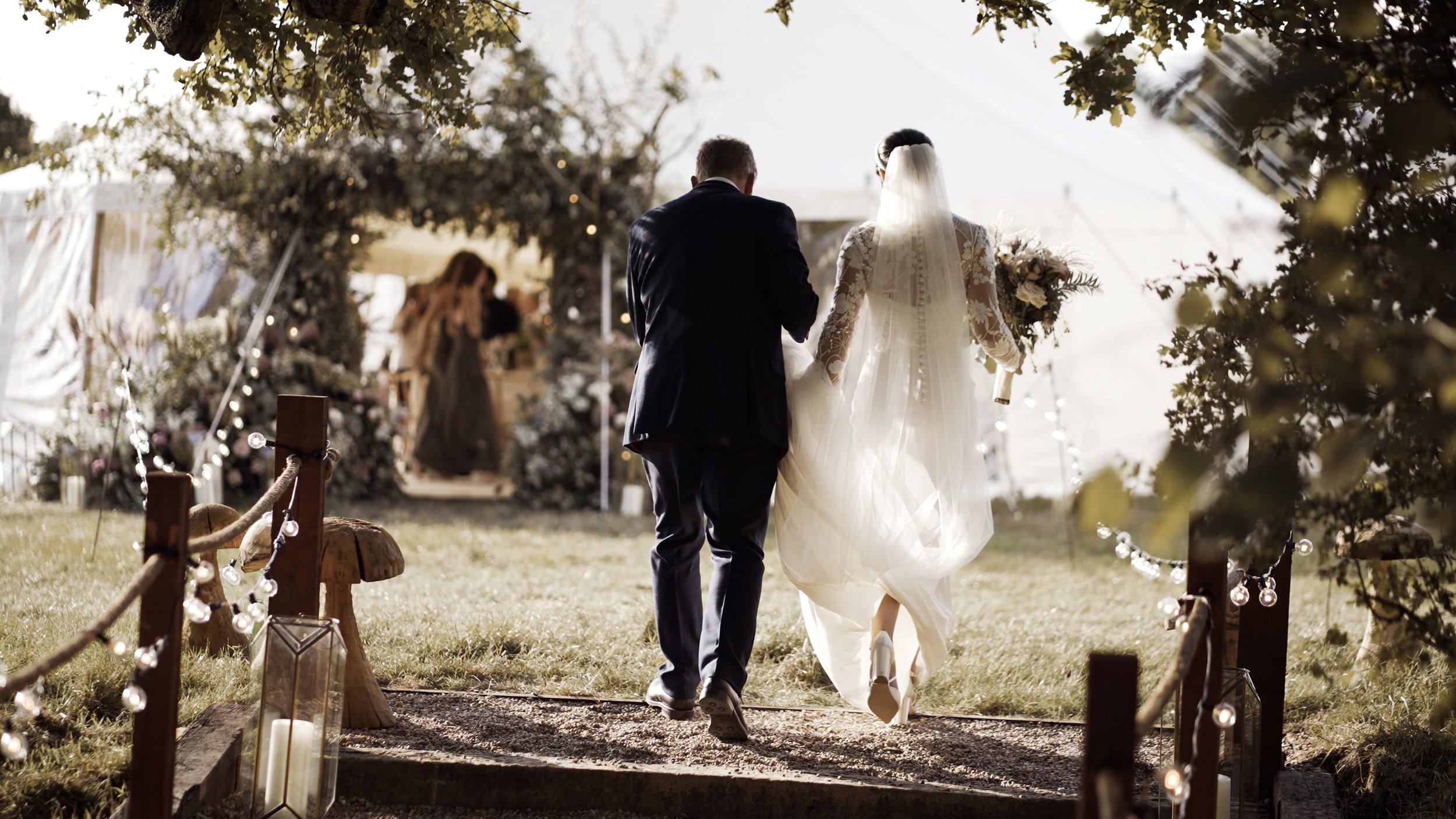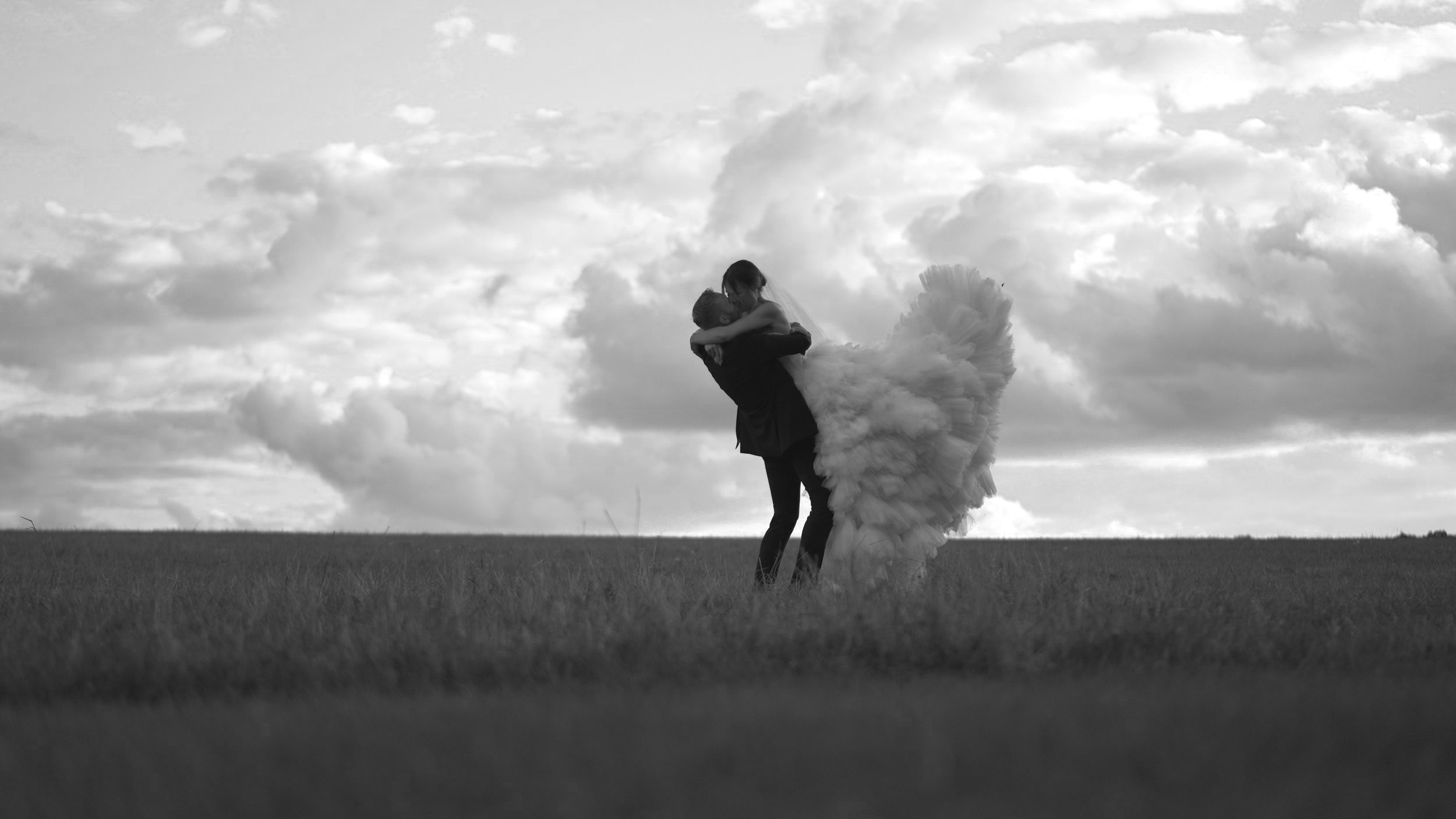An investment
that will last a lifetime.
The following section provides details on your investment and a comprehensive overview of what you can anticipate throughout your journey with me. From the initial booking process to the wedding day itself, and beyond, you will find a detailed look at each stage, ensuring you know what to expect every step of the way.

INVESTMENT.
I like to keep things simple, I offer three wedding videography packages that meet the needs of most couples. Here is an example of what’s included in my most popular package.
10-15 Minute Creative Feature Film
2-3 Minute Creative Highlight Film
20-30 Second Social Media Teaser
The Speeches in Full
Pre-wedding Consultation
Includes Travel
Online Password Protected Gallery
Films Downloadable
For more information and to receive a complete pricing brochure, please fill out the contact form.
When you choose me as your wedding videographer, the journey begins with an initial consultation to discuss your vision and preferences. Following that, we'll handle the paperwork and finalize the booking. Next, I'll be in touch to gather more details and help plan your day. On the big day, I'll be there from the morning preparations through to the evening celebrations, capturing every moment. Afterwards, I’ll meticulously edit the footage to create a stunning, personalized film that tells the complete story of your wedding day. Finally, you'll receive your beautifully crafted wedding film, ready to be cherished for a lifetime.
One
Getting to know each other.
Drawing on my extensive experience in wedding videography, I have developed a deep appreciation for the unique essence of each couple. Every couple has different desires and expectations for their wedding film, and my services are designed to be flexible to cater to your individual needs.
To create a wedding film that truly reflects your personality, we will have a comprehensive telephone call at the booking stage to understand what is most important to you. Additionally, we will have another call approximately one month before the wedding day to ensure everything is perfectly aligned.
I am committed to providing exceptional service for your wedding day, which is why I only take on a limited number of weddings each year, allowing me to maintain a high level of creativity and attention to detail.
two
GETTING ALIGNED.
To ensure that our expectations are perfectly aligned and every cherished moment is captured, I will ask you to complete a detailed pre-wedding questionnaire. We will review this together during our pre-wedding meeting, discussing all the essential details such as timelines, locations, and the key people involved.
This process helps us to meticulously plan your special day, ensuring that every important moment is documented with the utmost care and attention.
three
the Wedding Day.
By the time your wedding day arrives, I will have gathered all the necessary information to capture your day in its entirety. My goal is for you to have minimal interaction with me, allowing you to fully immerse yourself in the moments with your friends and family.
I will be present from the morning preparations and will seamlessly blend into the background, capturing moments in a subtle, unobtrusive, and journalistic manner throughout the day.
During the couple portraits, I will typically document the process of you both having your photos taken. However, I may also offer gentle guidance to ensure you look your absolute best while maintaining a natural appearance. I understand that you are not actors, and I aim to make the process enjoyable and stress-free, allowing your true personalities to shine through.
I will be with you capturing moments right up to the first dance and into the party atmosphere. During the dancing, I will assess how your wedding guests are feeling. If they seem camera shy, I may step away to let the dance floor fill up before returning. My priority is to ensure I capture the best possible footage for an amazing film, and I will only leave once I am confident I have achieved that.
four
After the Wedding Day.
Following the wedding day, if you have opted for a short teaser film, this will be delivered within 3-4 days after the wedding. Otherwise, you may not hear much from me until around 6-7 weeks later. I edit my wedding films in the order they were filmed, so you can expect to receive your full gallery within 12 weeks or less. The final product will be accessible through a private online gallery, which will be emailed to you, making it easy to share with friends and family.

Crafting your wedding film is not just about capturing moments; it's about preserving the essence of your love story for generations to come. With my dedication and attention to detail, I aim to create a timeless film that you, your family, and your friends will cherish forever.
FREQUENTLY ASKED QUESTIONS
-
No matter which package you choose, your speeches will be captured in their entirety. However, when it comes to the editing stage, only select segments of the speeches will be incorporated as part of the storytelling in your film. If your selected package explicitly includes 'full speeches,' you will also receive a meticulously edited and color-corrected documentary film featuring all the speeches.
-
Typically I will arrive around 2 hours before the ceremony and leave around half an hour after the first dance. However, if I feel like there's more to capture I'll hang around longer.
-
I am based in Surrey and happy to travel. I include all travel fees to venues in England and Wales. If you are further out including Scotland, Northern Ireland, and the rest of the world there will be a travel cost which I will quote for. Please enquire for more details.
-
You will receive your fully edited films within 12 weeks after the wedding, if not sooner. The editing process cannot be rushed.
-
Yes, drone use is included in all packages subject to weather conditions and any local restrictions.
-
We will schedule a phone call at the time of booking, and again approximately four weeks before the wedding to go over the schedule for the day. It’s also an opportunity for us to talk about any specific moments or individuals that are important to you and want to be captured.
-
The film will incorporate essential elements of your ceremony, such as your entrance, heartfelt vows, the first kiss, and any candid reactions throughout the event. Please note that the full ceremony coverage is not part of any package unless it's specifically selected as an optional enhancement.
The reason behind not including the entire ceremony as standard is to ensure that I maintain a discreet presence during the ceremony and avoid the complexities of setting up multiple tripods and angles unless this is specifically required.
-
Yes, I possess £5 million of public liability insurance, copies of insurance documents can be presented to the venue upon request.
-
Once you have completed the online booking form I will send over your digital contract for you to review, as well as an invoice to cover the non-refundable £500 booking fee and the remaining balance. The final balance of your package will be due 4 weeks before your wedding date.
Once I’ve received your signed contract and booking fee, your date will be fully booked for you. The next step will be to arrange a pre-wedding call, this typically takes place about a month before your wedding.
-
You will receive your fully edited films within 12 weeks after the wedding, if not sooner. The editing process cannot be rushed.
-
Yes, for longer films, these are an incredible addition that infuses a sense of nostalgia into your wedding film. Best of all, they come free with every feature film if you want to use them.


